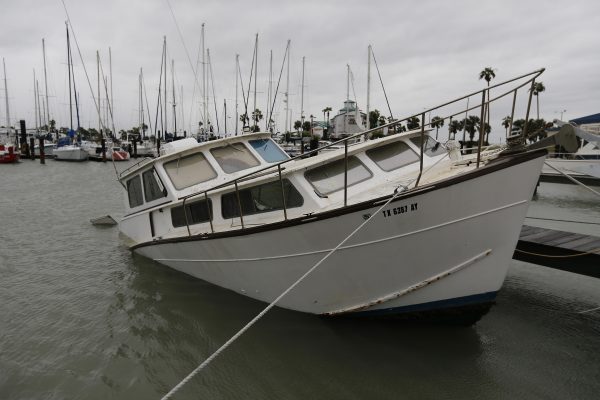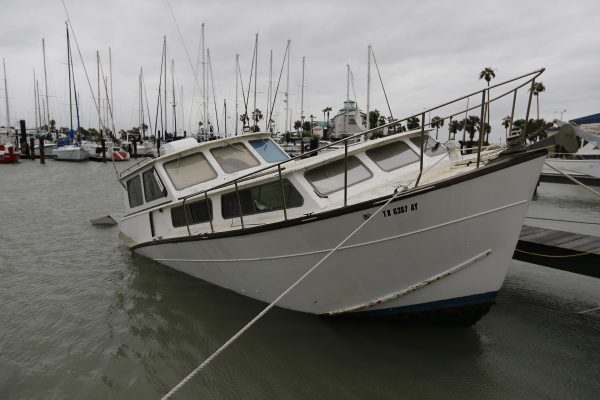Owning a boat is a thrilling experience, offering freedom, adventure, and relaxation on the open water. However, boat ownership also comes with significant responsibilities, particularly when it comes to safeguarding your vessel against the unpredictable forces of nature. Storms, whether they are hurricanes, tropical storms, or sudden squalls, can cause extensive damage to boats, leading to costly repairs or even total loss. This is where comprehensive boat insurance plays a crucial role. In this article, we will explore the importance of comprehensive boat insurance in storm preparedness, detailing its benefits, coverage, and the steps boat owners should take to ensure their investment is protected.
Understanding Comprehensive Boat Insurance
Comprehensive boat insurance is a policy that provides extensive coverage for a wide range of risks, beyond the basic liability and collision coverage. It typically includes protection against damage caused by theft, vandalism, fire, and natural disasters, such as storms. Unlike standard boat insurance, which might only cover accidents and third-party liability, comprehensive insurance ensures that boat owners are financially protected from a variety of unforeseen events.

Key Components of Comprehensive Boat Insurance
- Physical Damage Coverage: This covers repairs or replacement costs for your boat if it is damaged by covered perils, including storms. It typically includes the hull, machinery, and sometimes even personal belongings on the boat.
- Liability Coverage: This protects you against legal claims if your boat causes injury to others or damage to their property.
- Medical Payments Coverage: This covers medical expenses for injuries sustained by you or your passengers in a boating accident.
- Uninsured/Underinsured Boater Coverage: This provides protection if you are involved in an accident with another boater who lacks adequate insurance.
- Additional Coverage Options: Many policies offer optional add-ons, such as towing and assistance, fuel spill liability, and wreck removal coverage, which can be particularly useful in the aftermath of a storm.
The Importance of Comprehensive Boat Insurance in Storm Preparedness
Financial Protection
Storms can cause significant damage to boats, resulting in high repair or replacement costs. Comprehensive boat insurance ensures that you are not left to bear these financial burdens alone. By covering a wide range of damages, from minor repairs to total losses, comprehensive insurance provides peace of mind and financial stability.
Minimizing Out-of-Pocket Expenses
Without comprehensive insurance, boat owners would need to pay for repairs, replacements, and even salvage operations out of pocket. These expenses can be substantial, particularly if a storm causes widespread damage to multiple boats in a marina. Comprehensive insurance minimizes these out-of-pocket costs, making it easier for boat owners to recover financially after a storm.
Ensuring Compliance with Marina and Financing Requirements
Many marinas and financing companies require boat owners to have comprehensive insurance as a condition of docking or financing. This requirement ensures that all parties involved are protected in the event of a storm or other disaster. By maintaining comprehensive insurance, boat owners can meet these requirements and avoid potential legal and financial complications.
Providing Peace of Mind
Knowing that your boat is protected against a wide range of risks, including storms, can provide significant peace of mind. This allows boat owners to enjoy their time on the water without constantly worrying about the potential financial consequences of a storm. Comprehensive insurance provides the security and assurance that you are prepared for whatever nature may bring.
Steps for Storm Preparedness with Comprehensive Boat Insurance
1. Review and Understand Your Policy
Before storm season begins, it is crucial to review your comprehensive boat insurance policy. Ensure that you understand the coverage limits, exclusions, and deductibles. Pay particular attention to the provisions related to storm damage and any specific requirements for filing a claim. If you have any questions or concerns, contact your insurance provider for clarification.
2. Document Your Boat’s Condition
Take detailed photographs and videos of your boat’s current condition. This documentation will be invaluable in the event you need to file a claim after a storm. Make sure to capture images of the hull, engine, electronics, and any personal belongings on the boat. Keep these records in a safe place, along with your insurance policy documents.
3. Create a Storm Preparation Plan
Develop a comprehensive storm preparation plan for your boat. This plan should include steps for securing your boat, such as tying it down with extra lines, removing valuable equipment, and ensuring that the bilge pumps are functioning properly. If your boat is stored in a marina, coordinate with the marina management to understand their storm procedures and any additional steps you need to take.
4. Stay Informed and Act Early
Monitor weather forecasts and stay informed about potential storms in your area. Acting early can make a significant difference in your ability to protect your boat. As soon as a storm warning is issued, begin implementing your storm preparation plan. Avoid waiting until the last minute, as conditions can deteriorate quickly, making it more challenging to secure your boat safely.
5. Relocate if Necessary
If possible, consider relocating your boat to a safer location, such as an inland marina or a hurricane hole, which is a naturally protected area less likely to experience severe storm surge and high winds. While this may involve additional costs and effort, it can significantly reduce the risk of damage to your boat.
6. Maintain Regular Communication with Your Insurance Provider
Keep an open line of communication with your insurance provider, particularly as a storm approaches. Inform them of your storm preparation actions and any changes to your boat’s location. In the event that your boat is damaged, contact your insurance provider as soon as possible to begin the claims process.
7. Conduct Post-Storm Inspections
After the storm has passed, conduct a thorough inspection of your boat to assess any damage. Document the condition of your boat with photographs and videos, focusing on areas that were particularly vulnerable to the storm. Report any damage to your insurance provider immediately and follow their instructions for filing a claim.
The Role of Insurance Providers in Storm Preparedness
Insurance providers play a critical role in helping boat owners prepare for and recover from storms. Many insurers offer resources and guidance on storm preparation, including checklists, best practices, and safety tips. Additionally, some insurance companies provide discounts for policyholders who implement proactive storm preparation measures, such as installing hurricane straps or using certified marina facilities.
Claims Process and Support
In the aftermath of a storm, the claims process can be complex and time-consuming. A reputable insurance provider will offer support and assistance throughout this process, helping boat owners navigate the steps required to file a claim and receive compensation. This support can include on-site assessments, guidance on repair options, and expedited claims processing to ensure that boat owners can return to the water as quickly as possible.
Innovative Coverage Options
As the frequency and intensity of storms increase due to climate change, some insurance providers are developing innovative coverage options to better protect boat owners. These options may include enhanced storm-specific coverage, higher limits for storm-related damages, and flexible policies that adjust coverage based on seasonal risks. By staying informed about these options, boat owners can ensure they have the most comprehensive protection available.
Conclusion
Storm preparedness is a critical aspect of responsible boat ownership, and comprehensive boat insurance is an essential tool in this preparedness. By providing extensive coverage for a wide range of risks, comprehensive insurance ensures that boat owners are financially protected and can recover quickly from storm-related damages. From financial protection and minimized out-of-pocket expenses to peace of mind and compliance with marina requirements, the benefits of comprehensive boat insurance are numerous.
To maximize the effectiveness of comprehensive insurance, boat owners should take proactive steps to prepare for storms, including reviewing their policy, documenting their boat’s condition, creating a storm preparation plan, and maintaining regular communication with their insurance provider. By doing so, they can safeguard their investment and enjoy their time on the water with confidence, knowing they are well-prepared for whatever nature may bring.
